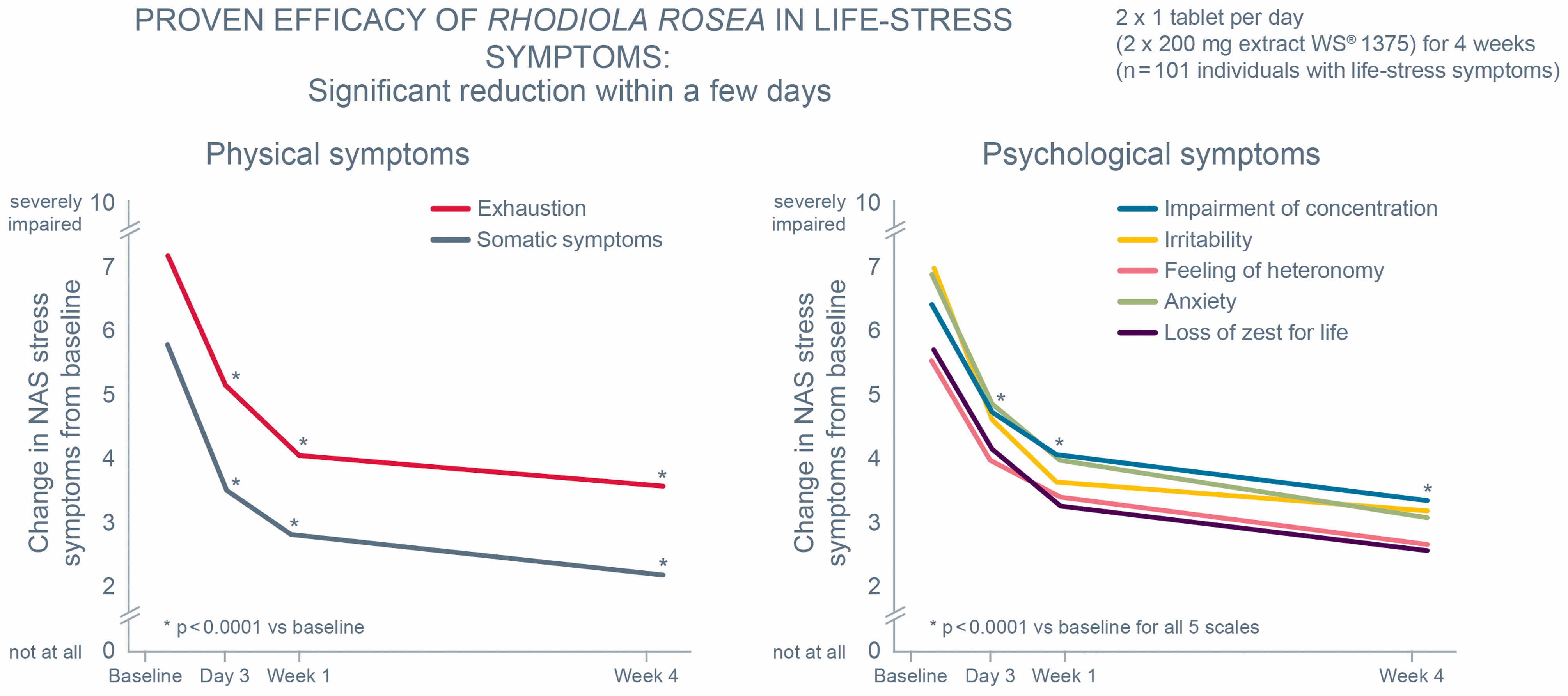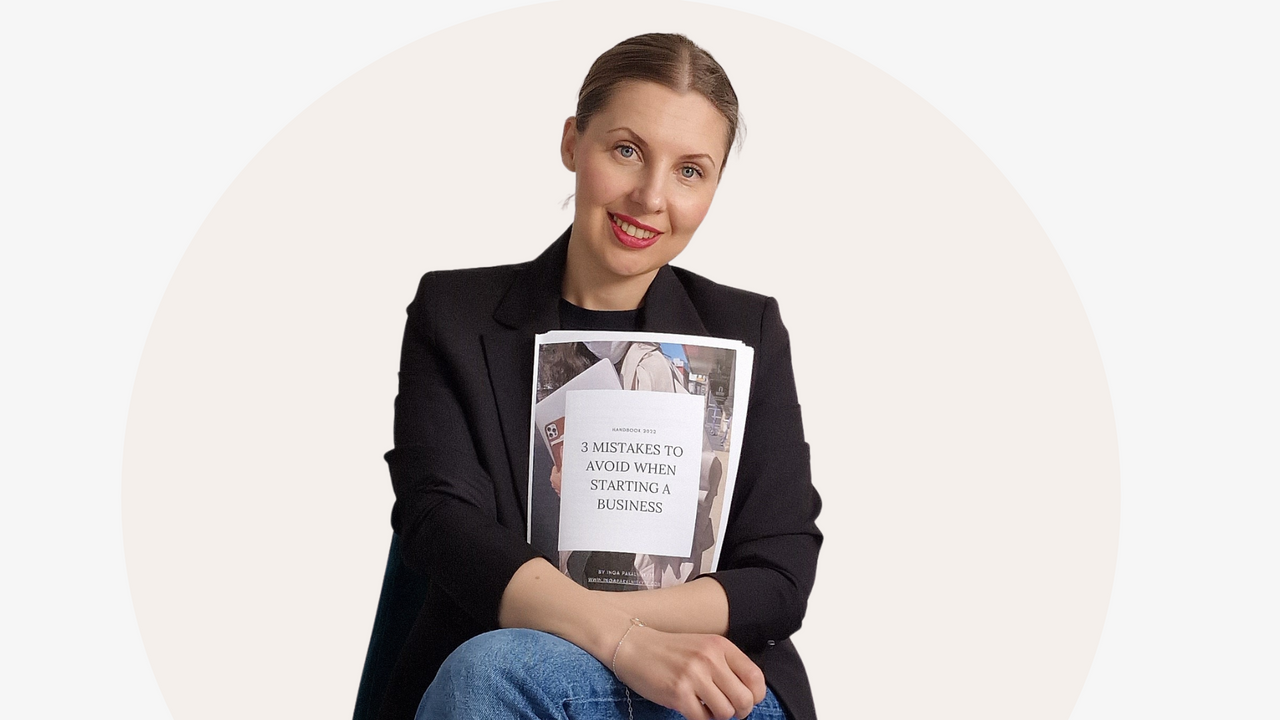Surprising Health Benefits of Rhodiola Rosea To Treat Seasonal Affective Disorder
Dec 19, 2022
A few years back, when I found myself dealing with Seasonal Depression. Me, being a nerd at heart, I dove deep into research. I wanted to learn everything I could, so I could better understand the cause of Seasonal Affective Disorder and what I could do to help myself.
In my recent YouTube video, I shared 6 Natural Ways To Avoid & Beat Seasonal Depression. There I share my research findings, primary causes of seasonal depression, my personal story and science-backed-up tips on what I do each year to successfully avoid winter depression.
One of the 6 tips included taking a herbal supplement called Rhodiola Rosea.
In this blog post, I will share some of the surprising health benefits of Rhodiola Rosea and how I use Rhodiola Rosea to treat Seasonal Affective Disorder and as a preventative measure in the winter months.
Let's dive in.
What is Rhodiola Rosea?
Rhodiola Rosea is a flowering herb that grows in the cold, mountainous regions of Europe, Asia and North America.
In Scandinavia, Northern Europe and Russia traditional folk medicine used Rhodiola Rosea to promote work endurance, increase longevity, and promote resistance to high altitude sickness, fatigue, depression and other health conditions.

Uses of Rhodiola Rosea
Herbal preparations of the underground organs (roots) of Rhodiola Rosea are used in traditional medicine for centuries.
In the former USSR (including countries which now belong to the European Union like Estonia, Lithuania and Latvia), a liquid extract (DER 1:1, extraction solvent ethanol 40%) was in medicinal use and in 1975 it was accepted for a so-called ‘Temporary Pharmacopoeia Article’ which allowed a large-scale production.
Dry extracts (DER 1.5-5:1), extraction solvent ethanol 67-70% v/v, are in medicinal use within the European Union since 1987. Therefore, the criteria for 30 years of medicinal use as defined for traditional herbal medicinal products in Directive 2004/24/EC are fulfilled.
Research suggests Rhodiola Rosea may aid the following:
- Ageing-related diseases (such as Alzheimer's)
- Anxiety disorders
- Depression
- Fatigue
- Gastrointestinal distress
- Nervous system disorders
- Physical performance
- Libido
- Stress
Health Benefits of Rhodiola Rosea
Rhodiola Rosea has been classified as an adaptogen. Adaptogens are plants that help make the body less prone to physical, biological and emotional stress.
What is an adaptogen? Criteria for Defining an Adaptogen
An adaptogen produces a non-specific response in an organism; i.e., an increase in power of resistance against multiple stressors including physical, chemical, or biological agents.
An adaptogen has a normalizing influence on physiology, irrespective of the direction of change from physiological norms caused by the stressor.
An adaptogen must be innocuous and must not influence normal body functions more than required.
I call adaptogens - smart herbs. They help bring everything into balance and fix everything that is out of balance.
They can pick you up when you’re low on energy and calm you down when you’re too agitated. They may regulate stress response, in part, by modulating the secretion of cortisol from the adrenal glands.
Rhodiola Rosea for Seasonal Affective Disorder
The seasonal affective disorder is a type of depression that re-occurs on a seasonal basis. Usually starts in autumn and resolves itself in spring or summer.
There are many scientific studies that show brilliant results when compared with common antidepressants, such as sertraline.
"Although Rhodiola Rosea produced less antidepressant effect versus sertraline, it also resulted in significantly fewer adverse events and was better tolerated. These findings suggest that Rhodiola Rosea, although less effective than sertraline, may possess a more favourable risk-to-benefit ratio for individuals with mild to moderate depression." - Rhodiola rosea versus sertraline for major depressive disorder: A randomized placebo-controlled trial.
Research has shown that Rhodiola Rosea may stimulate serotonin, norepinephrine and dopamine activity. The proper balance of these neurotransmitters is believed to be involved in healthy emotional and neurological functioning.
More and more scientific studies are being carried out suggesting that Rhodiola Rosea has great potential for the treatment of mild to moderate depression.
From my personal experience, Rhodiola Rosea has been a true game-changer to manage my winter blues. And since I discovered this herbal supplement, it has been a part of my winter regimen, successfully helping me avoid seasonal depression.
Rhodiola Rosea For Stress
As stress alone can have adverse effects on physical and mental health, managing stress for people who are already prone to Seasonal Affective Disorder is very important.
Clinical trials demonstrated, that Rhodiola Rosea has positive effects on stress management. Take a look at this graph from "Stress management and the role of Rhodiola rosea: a review.":

Is It Safe To Take Rhodiola Rosea?
Yes. Studies show that taking Rhodiola Rosea for up to 12 weeks is safe. There are little to no side effects. However, some people may experience:
- Dry mouth
- Dizziness
- Not being able to sleep
However, there may be interaction with medication for those who have bipolar disorder, or autoimmune diseases, such as multiple sclerosis. Always consult with a medical professional before taking any supplements.
How Much And When To Take?
Studies suggest that taking 400-600 mg daily has the best effects. Taking more than 600 mg per day is proven to lose its efficacy. So taking more than 600 mg is not necessary.
As Rhodiola Rosea has a stimulative effect, it’s best to take it in the morning or at lunchtime. You can choose to take a full dose in the morning or take half a dose in the morning and the second dose around lunchtime.
I always start taking Rhodiola Rosea as soon as we change our clocks. This year, it was on 31 October. This way, I am staying ahead of the curve and not waiting for the lack of sunshine to take the effect on my body.
Important Factors To Know Before Buying Rhodiola Rosea
While there are many brands selling Rhodiola Rosea, to ensure you get the benefits of taking this supplement, it is important to buy standardised Rhodiola Rosea.
Always look for a label clearly showing that the supplement is containing 3% rosavin and 1% salidroside.
Supplements containing non-standardised levels of rosavin and salidroside are not as effective.
My Favourite Brands For Rhodiola Rosea
Terranova: Rhodiola Rosea
Here’s why I love this brand: It used the dry-freeze method, which means the root is instantly frozen, keeping all the other components locked in.
I personally take two capsules (600 mg) in the morning for up to 12 weeks.
Pure Encapsulations: Rhodiola Rosea
This brand always delivers great quality supplements and is my second choice when buying Rhodiola Rosea supplements.
Final Notes
We must always remember, that we, humans, are an integral part of nature. Our bodies are responding to changes in the environment. And some people are simply more sensitive than others. If you are experiencing symptoms of seasonal depression, it means you are more sensitive to a lack of sunlight.
It is very important to better understand the biochemical processes that happen in your body and how that affects your mood, so you then can introduce strategies to manage and avoid seasonal depression.
Rhodiola Rosea can be a great natural addition to your winter regimen. Remember, always do your own research and consult with your doctor before taking any supplements.
With love,
Inga
LEARN MY 6 NATURAL WAYS TO OVERCOME & AVOID SEASONAL DEPRESSION
Sources:
Rhodiola rosea versus sertraline for major depressive disorder: A randomized placebo-controlled trial
https://www.ncbi.nlm.nih.gov/pmc/articles/PMC4385215/
Rosenroot (Rhodiola): Potential Applications in Aging-related Diseases
http://www.aginganddisease.org/EN/10.14336/AD.2018.0511
Stress management and the role of Rhodiola rosea: a review
https://www.tandfonline.com/doi/full/10.1080/13651501.2017.1417442
Rhodiola rosea L.: an Herb with Anti-Stress, Anti-Aging, and Immunostimulating Properties for Cancer Chemoprevention
https://link.springer.com/article/10.1007/s40495-017-0106-1
Before Steroids, Russians Secretly Studied Herbs
https://www.nationalgeographic.com/culture/article/long-before-doping-scandals--russians-were-studying-performance-
















